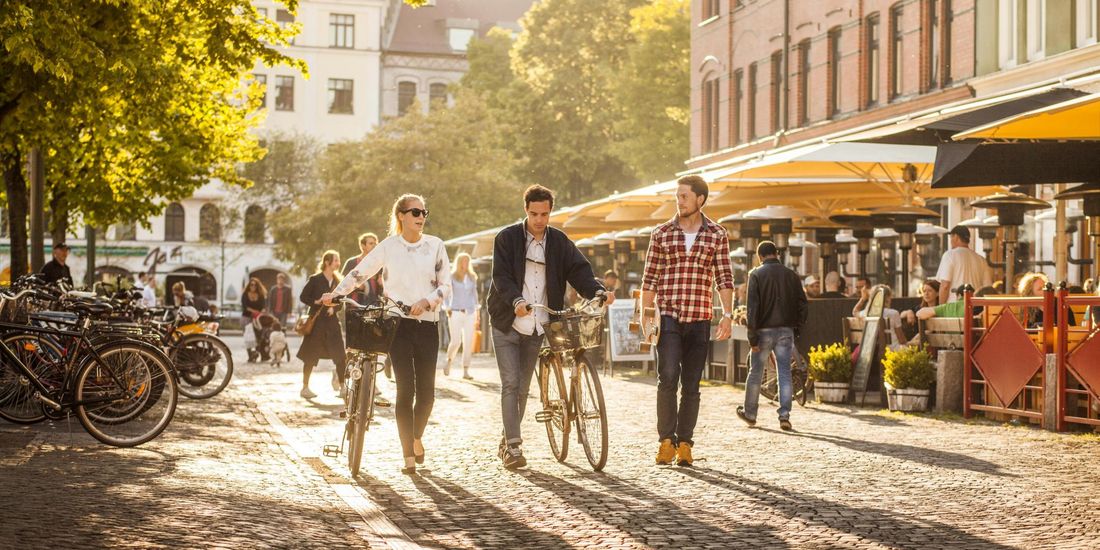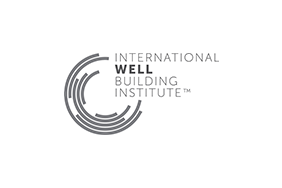Leading the Way for a Healthier and More Sustainable Malmö
Through public and private leadership, the City of Malmö is setting an example for other cities in the region by advancing healthy buildings.
Published 06-09-22
Submitted by International WELL Building Institute

Sweden continues to be a sustainability leader globally. Key to supporting the country’s top ranking are its cities, setting their own ambitious goals, few more enterprising than the City of Malmö.
With a goal to become Sweden’s most climate friendly city and a world leader in sustainable urban development, Malmö has committed to an aggressive, comprehensive plan for urban planning, as part of the city’s overarching objective to achieve a socially balanced city. The plan includes strategies that can help advance health and well-being strategies to support all its citizens.
Many global companies active in the region are no less ambitious. Several are also contributing to Malmö’s sustainability goals by pursuing WELL certification within their buildings and overall real estate portfolios. As background, the WELL Building Standard (WELL) spans 108 features organized under 10 concepts, serving as a roadmap for improving the quality of indoor air, water, light and more with inspired design decisions and other evidence-based interventions that deliver more thoughtful and intentional spaces that enhance human health and well-being. Organizations that demonstrate achievement of a minimum number of features can celebrate that achievement through WELL certification or other designations.
For example, Castellum, one of the largest commercial listed property companies in the Nordic region that develops flexible workplaces and smart logistics solutions, strengthened its collaboration with IWBI by enrolling its portfolio of 37 properties in Sweden, with 9 of those properties located in Malmö. One of those properties, which achieved a WELL Core Certification at the Gold level, is Eminent in Hyllie, Malmö. Hyllie is a new neighborhood established to be the most climate smart district in Öresund and a global role model for sustainable development. Castellum, committed to supporting well-being for its tenants, is one of the earliest companies to adopt WELL in the Swedish market and the Nordics and supports their tenants by implementing WELL strategies in their own fit-outs located in Castellum’s WELL Core office buildings.
“The WELL Building Standard has filled the gap between exterior and interior focus, with the whole purpose of directing focus on the person that works and visits the building,” said Ola Gunnefur, Business Developer at Castellum. “In the past, developers mostly concentrated on the building itself. When Castellum tried out pursuing the WELL certification the first time in Malmö (Eminent in Hyllie), we saw increased focus, time and money spent on health, well-being and training from both individuals and companies. When we ‘ran’ into this certification, it felt like a perfect match with what we aimed to create with our building. WELL is an expert guideline that all companies can cling on to and therefore guarantee the tenants that they are a thoroughly planned and thought through house.”
Another global leader, Skanska, a multinational construction and development company headquartered in Sweden, also has their own regional office space in Hyllie, Malmö, which achieved WELL Certification at the Gold level showing their commitment to “walk the talk”. Skanska is currently developing and pursuing WELL certification for 8 projects in Malmö, of which the EPIC office building has already achieved its WELL Core Certification at the Gold level.
“I think that we all can agree that the built environment has a profound impact on our health, well-being, happiness and productivity — that it can shape our habits and drive us toward healthy or unhealthy choices,” said Sofia Ekerlund, Head of Leasing and Marketing for Skanska. “Skanska has been shaping societies for over 135 years. Building on this heritage, we have made a commitment to build for a better society. To deliver on this promise one part is to create office buildings that are sustainable and inclusive, contributing to the health, well-being and creativity of the people impacted by them.”
“As a part of this work we made a strategic decision to partner up with IWBI and are working with the WELL certification [program] for all our projects in Malmö. What we really like about the WELL certification [program] is that it is really about the most important asset for most companies - its employees. In the end it is all about the people who inhabit the spaces we develop and build,” added Ekerlund.
In addition to the leadership of companies across the globe supporting cities in their sustainability goals, the International WELL Building Institute (IWBI) is currently exploring ways to support local governments worldwide in demonstrating leadership on advancing health and well-being across their buildings, organizations and communities.
This year, IWBI launched the WELL City Advisory to identify and scale strategies that can be used by city leaders to help achieve this vision, recognizing the critical role local government leaders can play in protecting and enhancing human health. The WELL City Advisory will provide feedback on strategies that can help cities take action and demonstrate leadership in advancing health, well-being and social equity in everything from municipal buildings to public spaces and from programs to policies.
Working in partnership with the National League of Cities (NLC) and informed by the advisory, IWBI will continue to work to help shape strategies that encourage cities to demonstrate leadership and address health, safety, resilience and equity challenges, while promoting well-being.
“It’s an exciting time to see IWBI’s growth as a major contributor to sustainability and health in a region that is already so well known for it,” said Eleftherios Zacharakis, who provides support to IWBI customers in Sweden.
This week, ICLEI – Local Governments for Sustainability is hosting its World Congress in Malmö where hundreds of local government leaders from around the world will be sharing ideas and best practices to accelerate sustainable cities. Malmö is a perfect host city, not just as a leader in urban sustainability, but also an emerging leader on healthy buildings. It’s something that will certainly be on display as the conference attendees see all that Malmö is doing.
View original content here

International WELL Building Institute
International WELL Building Institute
The International WELL Building Institute (IWBI) is a public benefit corporation and the world’s leading organization focused on deploying people-first places to advance a global culture of health. IWBI mobilizes its community through the administration of the WELL Building Standard (WELL Standard) and WELL ratings and certifications, management of the WELL AP credential, the pursuit of applicable research, the development of educational resources and advocacy for policies that promote health and well-being everywhere. More information on WELL can be found here.
IWBI is a participant of the United Nations Global Compact, the world’s largest corporate citizenship initiative, and helps companies advance the UN Sustainable Development Goals (SDGs) through the use of WELL.
More from International WELL Building Institute

